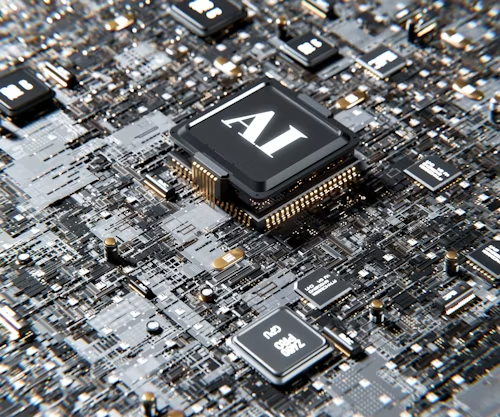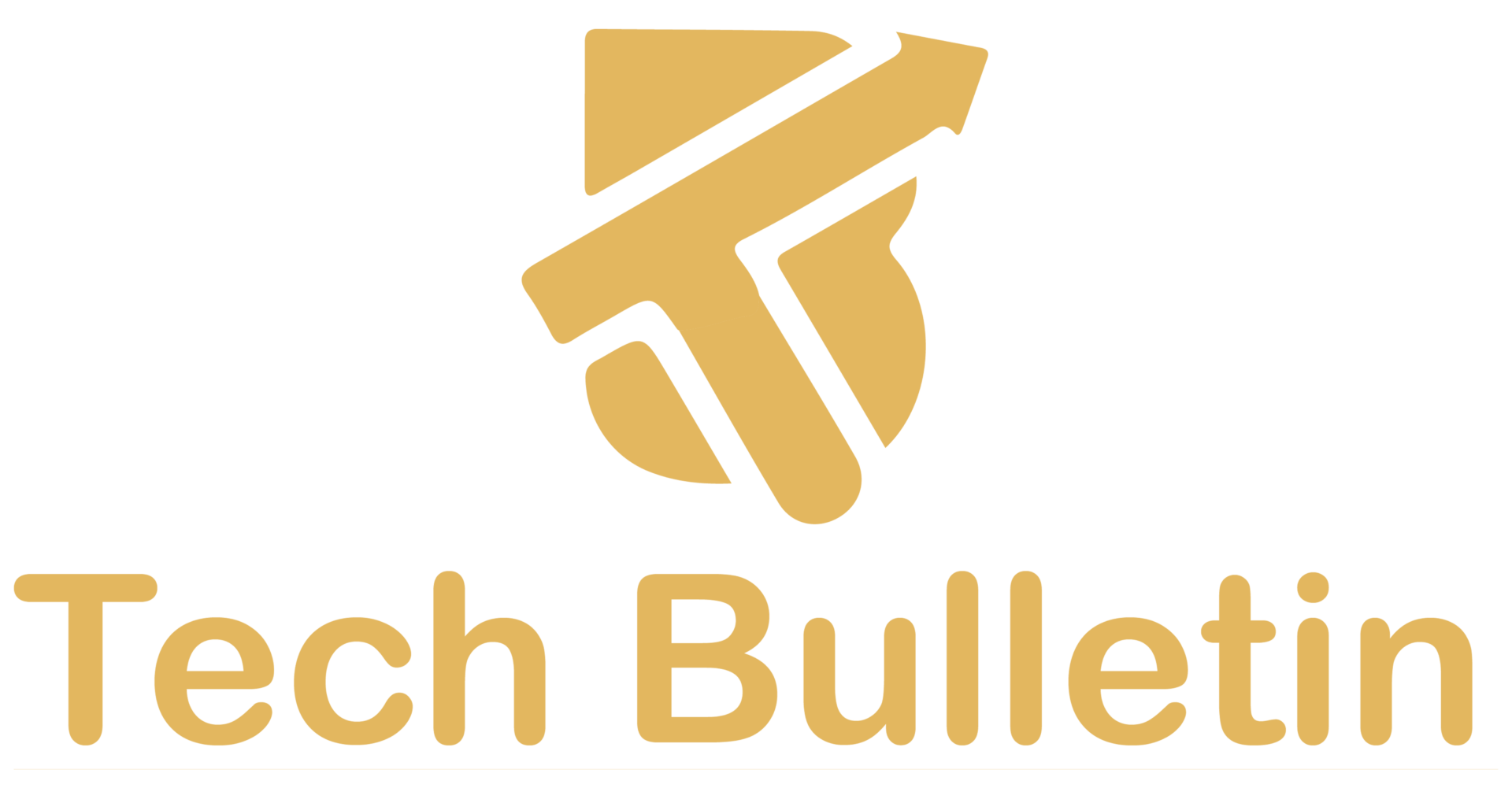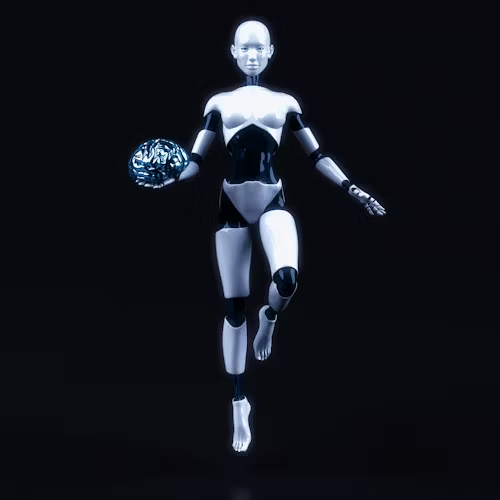Top AI Manufacturing Companies

The sector of manufacturing has changed more in the past decade than in the previous hundred years. Once dominated by heavy machinery, manual labor, and mechanical processes, factories are now becoming intelligent, connected, and data-driven.
This transformation is part of what’s called the Fourth Industrial Revolution, or Industry 4.0, and at its heart lies Artificial Intelligence (AI).
If you’re searching for “Top AI manufacturing companies,” chances are you want to understand which companies are leading this revolution, what they actually do, and how their innovations are shaping the factories of the future.
What Does AI in Manufacturing Really Mean?
Let’s start with the basics. When people talk about AI in manufacturing, they’re really talking about technology that helps machines and computers think, learn, and make better decisions.
It’s not about robots taking over, it’s about giving them the ability to recognize patterns, predict issues, and support human workers. For instance, AI-powered systems can use sensors to predict when a machine might break down so repairs happen before it fails.
Cameras equipped with AI can inspect thousands of products in seconds, spotting tiny defects that humans might miss. AI also studies production data to streamline workflows, reduce waste, and cut costs. Even robotics are getting smarter; machines can now learn from experience and safely work side by side with people on the factory floor.
In short, AI is turning manufacturing into a world where machines don’t just work harder; they work smarter.
Why AI Matters in Manufacturing
Manufacturing is one of the most resource-intensive industries in the world. Every minute of machine downtime, every batch of defective products, and every wasted raw material affects the bottom line. AI is changing that by helping manufacturers:
- Save money: Preventing breakdowns and improving efficiency.
- Improve product quality: Through real-time inspections and analytics.
- Reduce waste: Optimizing material use and cutting energy consumption.
- Make faster decisions: Using real-time data instead of guesswork.
- Stay competitive: Because global manufacturers that don’t embrace AI risk falling behind.
Top AI Manufacturing Companies in 2025
Below are six companies making a real difference in the AI manufacturing space. These are global leaders known for innovation, industrial expertise, and practical AI applications that deliver results.
1. Siemens
Siemens has been shaping industrial technology for over a century. In the AI era, they’ve become a pioneer in what’s known as the “digital factory.”
Their AI platforms allow manufacturers to connect machines, sensors, and systems into a single intelligent network. Siemens uses digital twin technology, virtual copies of real equipment to simulate and optimize production before it even begins.
Their tools also help reduce energy waste, prevent downtime, and improve product precision. Whether it’s a car plant or an electronics factory, Siemens helps turn data into smarter operations.
2. IBM
IBM is one of the oldest and most respected names in computing, and its Watson AI platform is at the core of many industrial solutions.
In manufacturing, IBM uses AI to predict machine failures, automate quality control, and optimize supply chains. Their systems analyze thousands of data points from production lines and turn them into actionable insights.
IBM’s strength lies in its ability to work with large-scale enterprise systems, making it a trusted partner for big manufacturers that want to modernize without starting from scratch.
3. NVIDIA
NVIDIA is best known for its graphics processing units (GPUs), but its real power today lies in AI hardware and simulation technology.
In manufacturing, NVIDIA’s chips and AI software power advanced robotics, computer vision, and real-time factory simulations. Their Omniverse platform allows manufacturers to create digital twins of entire factories; virtual spaces where engineers can test changes before applying them in the real world.
NVIDIA enables the “brains” behind many AI-powered robots and industrial systems, giving machines the ability to process data instantly and act intelligently.
4. Rockwell Automation
Rockwell Automation specializes in helping factories automate everything from assembly lines to logistics.
Their AI tools, such as FactoryTalk Analytics; monitor machines in real-time, predicting when maintenance is needed or when performance drops. They’ve partnered with top tech companies to bring cloud computing and AI into industrial settings.
Rockwell is a leader because it understands factories deeply. Their systems blend AI and traditional automation, allowing manufacturers to modernize without replacing their entire infrastructure.
5. C3 AI
C3 AI is a pure-play AI software company that builds platforms specifically for business operations, including manufacturing.
Their manufacturing suite includes predictive maintenance, production optimization, and supply chain analytics. C3 AI helps companies use all their data from machines, sensors, and logistics to make faster, smarter decisions.
They focus on measurable results: fewer breakdowns, higher yields, and reduced costs. Their approach is data-driven and scalable, making it ideal for large industrial organizations.
6. ABB
ABB is a global leader in robotics, automation, and energy solutions. Their Ability™ AI suite connects machines, sensors, and cloud-based analytics into one ecosystem.
Their AI tools monitor energy use, optimize manufacturing processes, and help companies move toward sustainability goals. ABB also makes collaborative robots (“cobots”) that safely work alongside humans in factories.
The company’s blend of hardware expertise and AI-driven analytics makes it one of the most well-rounded players in industrial technology today.
How AI Improves Manufacturing
Now that we know who’s leading the field, let’s explore how AI actually transforms production environments.
1. Predictive Maintenance
AI tracks data from sensors like vibration, temperature, and pressure to predict when a machine is about to fail. Maintenance teams can fix it before it stops working, saving both time and money.
2. Quality Control
AI-powered vision systems inspect every product that leaves the line. They detect defects or irregularities that might escape human inspectors, ensuring higher product quality.
3. Process Optimization
AI algorithms analyze massive amounts of production data to identify bottlenecks, inefficiencies, or waste. The result? Smoother operations and reduced costs.
4. Robotics and Automation
Robots are no longer rigid or repetitive. With AI, they can adapt to new tasks, recognize objects, and work safely with human employees.
5. Supply Chain Management
AI helps manufacturers plan ahead forecasting demand, optimizing inventory, and identifying supply disruptions before they happen.
6. Sustainability
AI can monitor energy and resource consumption across an entire factory, finding new ways to reduce emissions and material waste.
What to Consider When Choosing an AI Partner
If you’re thinking about bringing AI into your business, choosing the right partner can make all the difference. Start by looking for a company that truly understands your industry; every factory and operation has its own unique challenges, and experience matters.
Make sure their AI tools can integrate smoothly with your current systems and equipment; replacing everything isn’t always necessary. You’ll also need to check your data readiness, because AI is only as good as the information it learns from. It’s smart to begin with small projects, but pick a partner whose solutions can scale as your needs grow.
Don’t forget about support and training, your team should feel confident using and maintaining the technology. Finally, ensure there’s a clear return on investment: the best AI solutions deliver measurable improvements in performance, savings, and efficiency.
Challenges in Adopting AI
While AI promises big benefits, it’s not without its hurdles.
- High initial costs: Setting up AI systems often requires a significant investment in equipment, software, and training.
- Legacy systems: Many factories use older machines that aren’t easily compatible with modern AI technology, making integration more complex.
- Data quality issues: AI depends on accurate, reliable data, and not every organization has the right data structure or cleanliness to start with.
- Workforce adaptation: Employees may feel uncertain or resistant to new technologies, so change management and training are essential.
- Cybersecurity: As factories become more connected, they also become more vulnerable to cyber threats, requiring strong data protection and network security measures.
The Future of AI in Manufacturing
The next wave of innovation in manufacturing is already on the horizon, and it’s going to be exciting. We’re entering a time when digital twins, virtual copies of entire production systems, will become the norm for testing, monitoring, and improving processes before any real changes happen on the factory floor.
Generative AI will help engineers design smarter products and streamline manufacturing workflows in ways that were once impossible. Meanwhile, AI at the edge will allow machines to make decisions instantly, without relying entirely on the cloud, leading to faster and more secure operations.
Beyond the factory itself, smarter supply chains will connect suppliers, warehouses, and logistics networks into one intelligent ecosystem that reacts in real time. And underpinning it all is a growing focus on sustainability, with AI helping companies track resource use, cut emissions, and move toward greener manufacturing. The future factory, it seems, will be not just smart, but also efficient, adaptive, and environmentally responsible.






